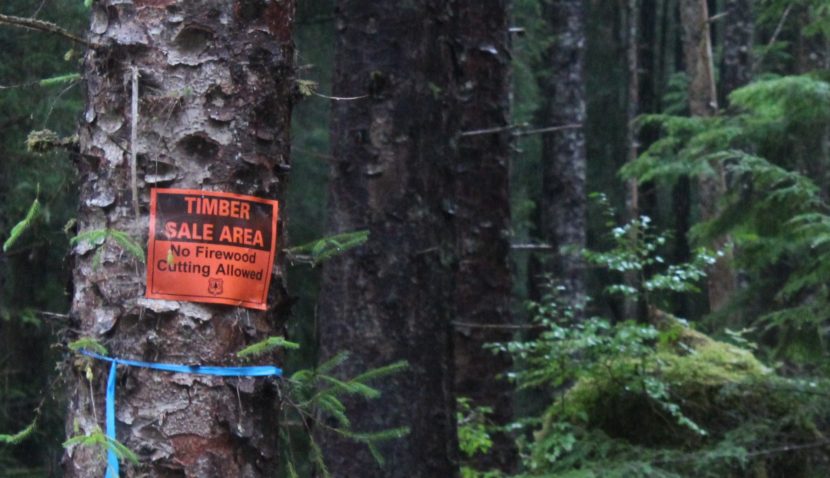
The state of Alaska is again trying to overturn the U.S. Forest Service’s roadless rule.
Officials on Nov. 6 appealed a September court decision that threw out an earlier state challenge.
The rule mostly blocks logging in undeveloped areas of the Tongass National Forest.
It was established more than 15 years ago, but the Tongass was given an exemption, which was later overturned.
Assistant Attorney General Tom Lenhart said the state continues to challenge the roadless rule because it’s damaging Southeast Alaska’s economy.
“It’s played a key role in the almost complete demise of the timber industry,” Lenhart said. “It’s impacted utility companies and rural communities who may have future plans to build additional roads to connect to the outside world.”
The Southeast Alaska Conservation Council is one of the environmental groups that supported the rule in court.
Attorney Buck Lindekugel said the state’s appeal doesn’t make sense.
“They seem stuck in the past. Today’s economy here in Southeast is driven by tourism, recreation and fishing, not old-growth logging,” Lindekugel said.
State Forester Chris Maisch manages state timber lands near the Tongass National Forest. He said the timber economy could rebound if the roadless rule is overturned.
“It essentially provides the ability to manage in a much more flexible manner, not only just forest resources, but energy resources as well as mining resources on the forest,” Maisch said.
Among other arguments, the state said the roadless rule violates federal legislation requiring the U.S. Forest Service to meet the demand for Tongass timber.
The state filed this case in 2011 in the U.S. District Court for the District of Columbia. The appeal was made to the D.C. Circuit Court of Appeals.
The state’s Lenhart said some earlier rulings have been close, so it’s worth another try.
“We’re relatively optimistic that a three-judge panel at the D.C. Circuit may well come to a different conclusion and may in part or in total invalidate the roadless rule this time,” Lenhart said.
SEACC’s Lindekugel said the appeal is a waste of time and money.
A separate challenge has already been rejected by the U.S. Supreme Court.
“Instead of working with local communities to change things on the ground for the long-term interests of everybody, they’re focusing on a fraction of the economy by propping up the timber industry at everybody’s expense,” Lindekugel said.
Ed Schoenfeld is Regional News Director for CoastAlaska, a consortium of public radio stations in Ketchikan, Juneau, Sitka, Petersburg and Wrangell.
He primarily covers Southeast Alaska regional topics, including the state ferry system, transboundary mining, the Tongass National Forest and Native corporations and issues.
He has also worked as a manager, editor and reporter for the Juneau Empire newspaper and Juneau public radio station KTOO. He’s also reported for commercial station KINY in Juneau and public stations KPFA in Berkley, WYSO in Yellow Springs, Ohio, and WUHY in Philadelphia. He’s lived in Alaska since 1979 and is a contributor to Alaska Public Radio Network newscasts, the Northwest (Public Radio) News Network and National Native News. He is a board member of the Alaska Press Club. Originally from Cleveland, Ohio, he lives in Douglas.




